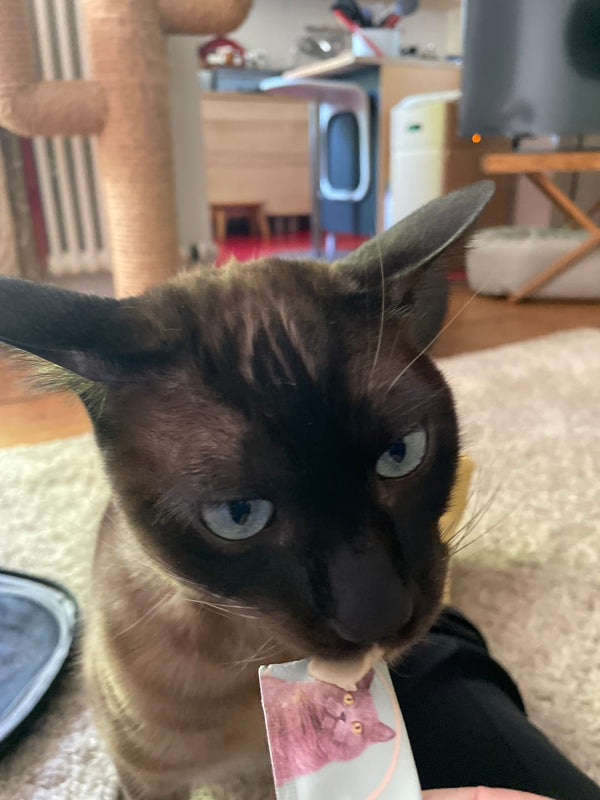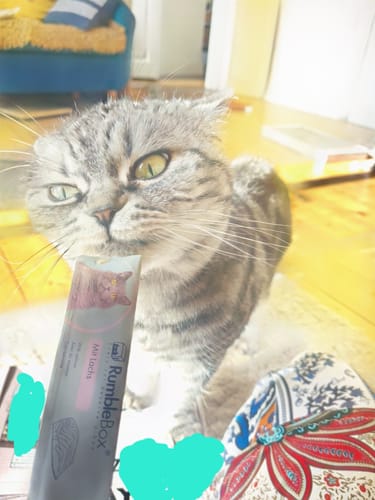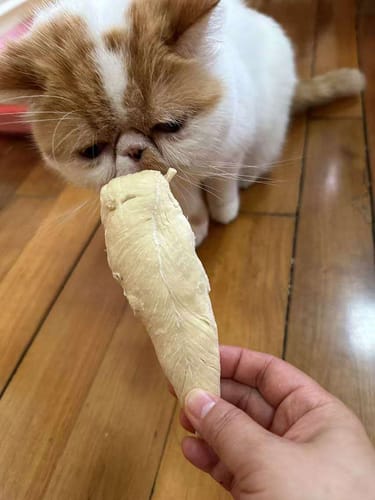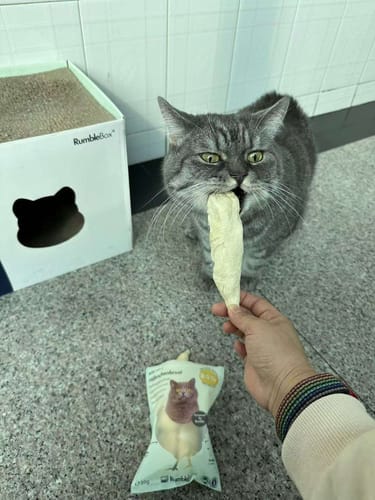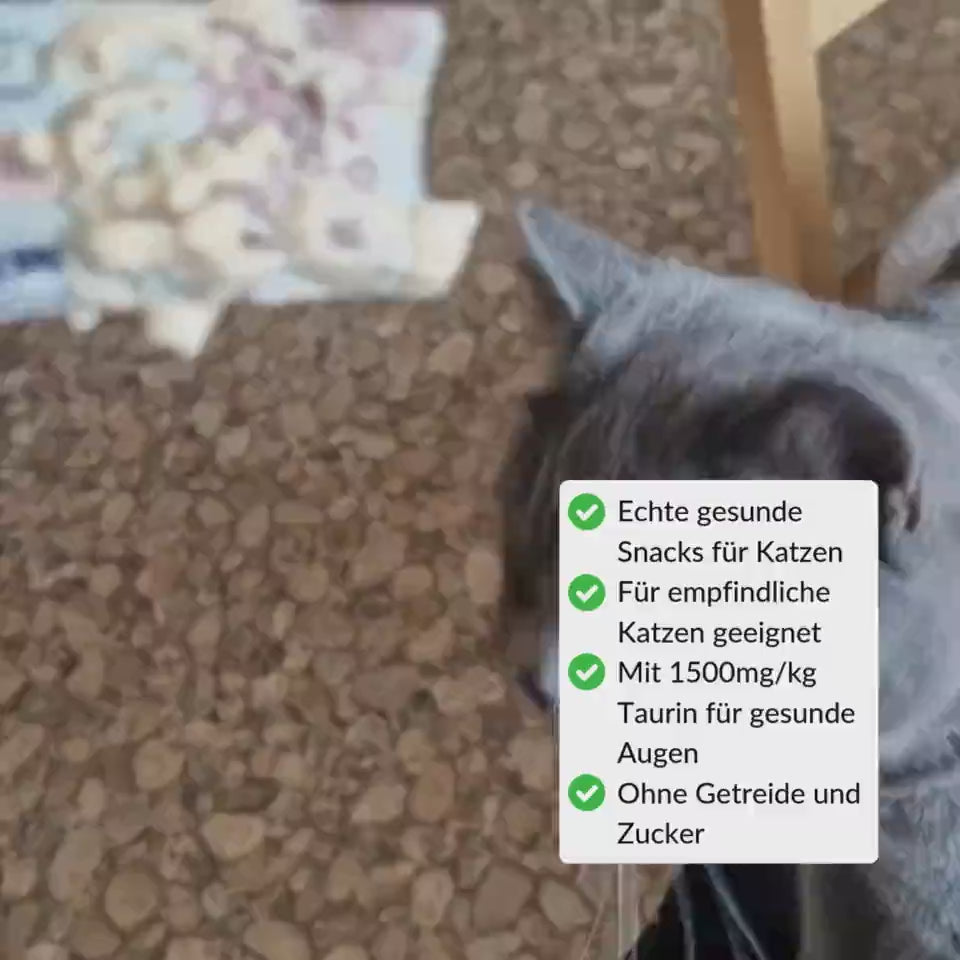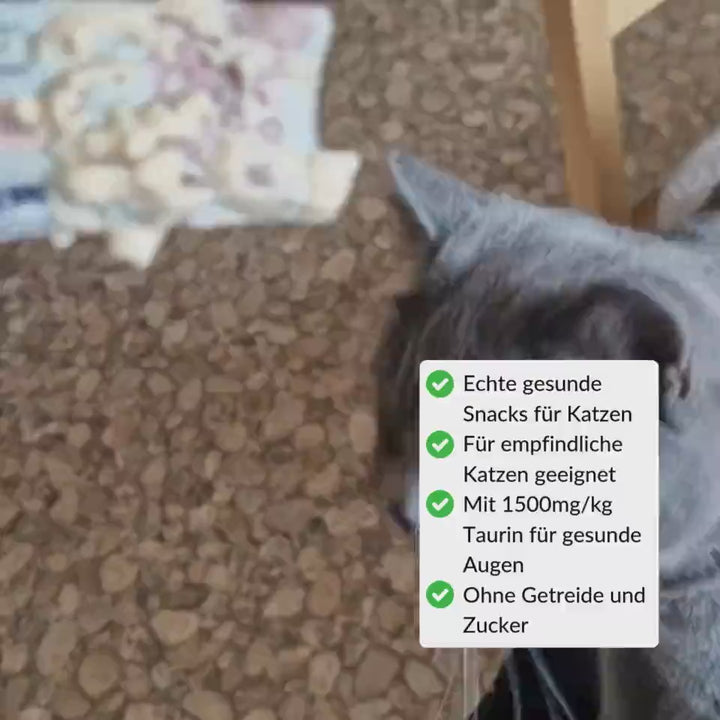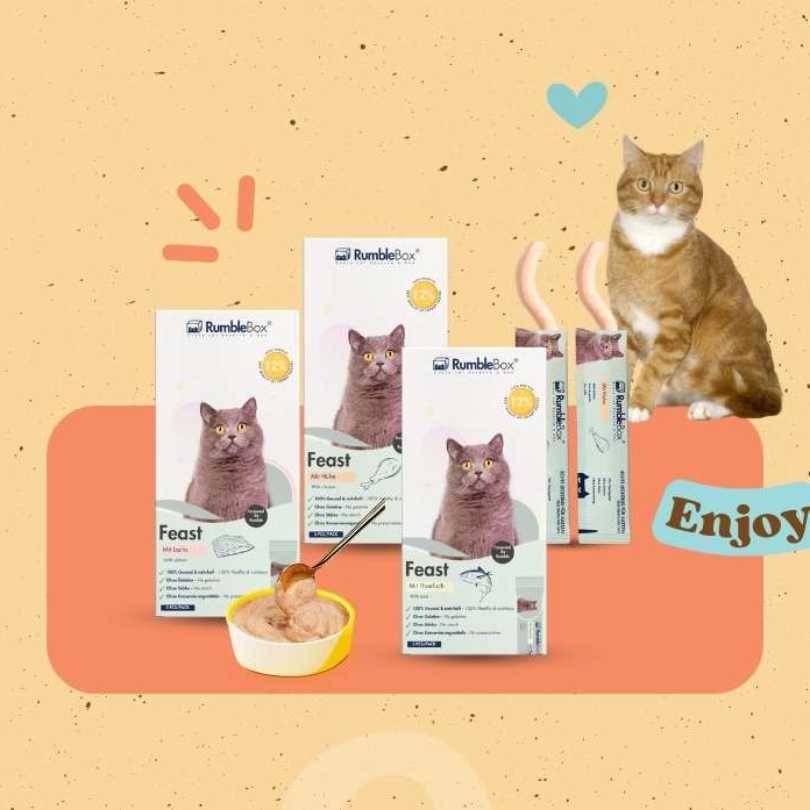Can cats eat tuna? Here's what you should know.
Tuna is highly sought after by many cats. Its intense aroma, soft texture, and high protein content make it a popular snack. But is tuna really healthy for cats? And what about canned tuna?
Why do cats love tuna so much?
Most cats are absolutely crazy about tuna – and that's no coincidence. The reason lies in the combination of:
- A strong fishy smell that appeals to their sensitive sense of smell.
- Umami taste, which cats particularly like (they hardly taste sweet, but umami tastes very distinct)
- A delicate consistency that is easy to chew and swallow – even for older cats or those with dental problems.
- Rapid positive reinforcement: Once eaten and loved – many cats demand it again and again.
But precisely this strong attraction makes it all the more important to pay attention to quality and quantity.
Is tuna good for cats?
Tuna can be healthy for cats. It should be fed as a supplement and be of good quality.
Tuna contains many important nutrients, including:
- High-quality protein for muscle building
- Omega-3 fatty acids for skin, coat and heart
- Important vitamins such as B12 and D
- Selenium and iodine for thyroid and immune system
However, feeding tuna should not become a daily habit. Cats need a balanced diet. They require all essential nutrients. Tuna alone is not enough. Too much tuna can cause problems.

Which tuna products are unsuitable for cats?
Not all canned tuna is suitable for cats. Many products in supermarkets are intended for humans, but they contain additives that can be harmful to cats.
1. Tuna in sunflower oil or vegetable oil
- Too fatty for a cat's sensitive metabolism
- Often leads to diarrhea or weight gain
- Plant oils do not provide any useful nutrients for cats.
Better: Tuna in its own juice – without oil.
2. Salted tuna
- Salt puts a strain on kidney function.
- Can lead to high blood pressure and dehydration
- Especially dangerous for older cats or cats with kidney disease
Look for "no salt" or "low sodium" labels when shopping.

3. Seasoned or marinated tuna
- Onion or garlic extracts are highly toxic to cats.
- Herbs, flavorings, and preservatives can trigger allergies and stomach problems.
- Products labeled "spicy", "hearty", or "Mediterranean" are also taboo.
Even small amounts can lead to health problems.
4. Raw tuna
- Contains thiaminase, an enzyme that breaks down vitamin B1.
- Can lead to nerve damage, muscle weakness, and cramps.
- Raw fish also carries the risk of bacteria or parasites.
Conclusion: Never feed raw tuna – unless it has been specially prepared for cats.

Tuna is delicious – but how do you feed it properly?
Tuna is a delicacy for many cats – but straight from the can isn't the best solution. Perhaps you've experienced this yourself:
- The cat gets diarrhea
- After that, he won't eat any more dry or wet food.
- Reacts with stomach upset or a dull coat
The reason? Many tuna products are intended for human consumption – containing salt, oil, or spices. This can lead to health problems in cats.
Heavy metals in tuna: An underestimated risk
Tuna are predatory fish. This means they can be contaminated with heavy metals like mercury. Regular feeding can lead to health problems.
- Kidney damage
- Nerve damage
- Long-term strain on the immune system

Feed safely: Our tested tuna products
RumbleBox Tuna Treats – the best of the sea, perfectly tailored to your cat.
Advantages:
- 70% fresh tuna
- No sugar, no grains, no artificial additives
- Enriched with tuna oil and taurine
- Creamy consistency – ideal for senior and picky cats
- Each batch is tested for heavy metals.
This makes enjoying tuna not only delicious for cats, but also safe.
Why a tuna lollipop is the better choice
Many conventional hard candy snacks consist of:
- Meat meal or animal by-products
- Sugar, flavorings, preservatives
- Low meat content
We're taking a different approach:
Our Feast Schleckies with tuna consist of:
- 70% fresh tuna
- Supplemented only with water and taurine
- Free from sugar, grains and artificial additives
They also contain:
- 1500 mg of taurine per kilogram – essential for the heart, eyes and immune system
- Fish oil – rich in omega-3 fatty acids for healthy skin and a shiny coat
- Eggs – provide high-quality protein and lecithin to support muscle development and coat health
This is how tuna becomes a healthy, functional treat for cats – without compromise.
Conclusion: Tuna for cats – feed it with a clear conscience
Cats can eat tuna – but only in moderation and under certain conditions. If you feed your cat canned tuna, pay attention to the quality and ingredients.
- No salted, seasoned, or oily tuna.
- Tuna only in its own juice, without additives
- No raw tuna, unless specially processed.
- Always in conjunction with a balanced diet
This way, tuna remains a highlight for cats – without health risks.
Thank you for reading this far – it really means a lot to us! We hope you found something useful and maybe your cat is already looking forward to a little something extra. See you soon and lots of purrs!
By the way
Many cat owners pay close attention to the ingredients in their cat's main food , but often forget about treats .
Snacks often contain sugar, grains and artificial additives that can be harmful to health in the long run.
Anyone who truly wants to feed their cat a completely healthy diet should also rely on natural ingredients here:
Hypoallergenic treats without additives – naturally from RumbleBox. Perfect as a reward, during training, or simply as a snack.
Over 2,500 cats have already switched to healthy snacks!
💚






